Passage Preparation™ offers courses designed to prepare you for the Praxis Special Education Tests: Core Knowledge & Applications (5354) and Special Education: Core Knowledge & Severe & Profound Applications (5545).
Prepare to Become a Special Education Teacher in Your State
Whether you are preparing to earn initial licensure as a special education teacher or preparing to add on a special education endorsement, you likely need to pass a certification exam as part of your requirements. Passage Preparation™ now offers courses designed to prepare you for the Praxis® Special Education: Core Knowledge & Applications (5354) and Praxis® Special Education: Core Knowledge & Severe & Profound Applications (5545) teacher certification tests.
Special Education is a National Shortage Area
Special Education teachers are in high demand. For the past decade, the U.S. Department of Education has identified Special Education as a shortage area for the majority of states. In fact, the Council for Exceptional Children has identified special education as a shortage area for 49 states and the District of Columbia. By preparing to become a special education teacher you help to fill a significant gap in America’s P-12 education system. To do so, you need to successfully prepare for your teacher licensure tests.
What is Required on the Praxis Special Education Exams?
The Praxis® Special Education: Core Knowledge & Applications (5354) and Praxis® Special Education: Core Knowledge & Severe & Profound Applications (5545) tests are standardized assessments designed to evaluate your knowledge of content and pedagogical strategies required for effectively teaching in special education classrooms and settings. Educational Testing Service (ETS®) has developed and delivers these exams which are used by multiple states as part of their teacher licensure process.
The Praxis® Special Education: Core Knowledge & Applications (5354) assessment consists of 120 multiple choice questions and covers topics such as:
- Development and characteristics of learners
- Planning and learning environment
- Instruction
- Assessment
- Foundations of learning and professional responsibilities
The Praxis® Special Education: Core Knowledge & Severe & Profound Applications (5545) assessment consists of 90 multiple choice questions and three constructed response questions. This test covers similar areas:
- Development and characteristics of learners
- Planning and learning environment
- Instruction
- Assessment
- Foundations of learning and professional responsibilities

What is the Difference Between Multiple Choice and Constructed Response Items?
Multiple Choice Questions on the Praxis Special Education Exams
Multiple choice, or selected-response, items provide a question stem or stimulus which can take the form of a statement or question. These items typically include four response options or answer choices, one of which is correct. Here is an example:
What is the purpose of an Individualized Education Program (IEP) in special education teaching?
A) To track the progress of the student throughout the school year.
B) To outline the goals, accommodations, and services for a student with a disability.
C) To provide one-on-one tutoring to students who struggle in a particular subject.
D) To determine the appropriate classroom setting for a student based on their behavior.
Constructed Response Questions on the Praxis Special Education Exams
Constructed response items usually provide a question, sometimes including a stimulus such as student assessment data, an image, or a text passage, and require you to write a response addressing certain criteria. Here is an example:
Describe one evidence-based instructional strategy for teaching reading to students with dyslexia.
In your response, be sure to:
- Clearly identify the instructional strategy.
- Explain how the instructional strategy supports students with dyslexia.
- Provide at least one example of how you could implement the instructional strategy in a classroom setting.
- Use specific and relevant examples and details to support your explanation.
Your response should be at least 150 words in length and demonstrate a clear understanding of the instructional strategy and its application to teaching reading to students with dyslexia.
These responses are generally scored using a rubric. Here is an example of a rubric that may be used to score a response to the above question:
| Criteria | Proficient (4) | Developing (3) | Needs Improvement (2) |
| Identification of instructional strategy | Clearly identifies an evidence-based instructional strategy for teaching reading to students with dyslexia. | Identifies an instructional strategy, but it may not be evidence-based or may not directly support students with dyslexia. | Does not identify an instructional strategy or the strategy identified is not relevant to teaching reading to students with dyslexia. |
| Explanation of strategies for support for students with dyslexia | Provides a clear and detailed explanation of how the instructional strategy supports students with dyslexia. | Provides a basic explanation of how the instructional strategy supports students with dyslexia, but lacks detail or clarity. | Does not provide an explanation or the explanation provided is incorrect or irrelevant to supporting students with dyslexia. |
| Example of how strategy could be implemented in a classroom setting | Provides a clear and relevant example of how the instructional strategy could be implemented in a classroom setting to support students with dyslexia. | Provides an example of how the instructional strategy could be implemented, but it may not be directly related to supporting students with dyslexia or lacks detail or clarity. | Does not provide an example or the example provided is incorrect or irrelevant to supporting students with dyslexia. |
| Use of specific and relevant examples and details | Uses specific and relevant examples and details to support the explanation of the instructional strategy and its application to teaching reading to students with dyslexia. | Provides some examples and details, but they may not be specific or relevant to supporting students with dyslexia. | Lacks specific and relevant examples and details to support the explanation of the instructional strategy and its application |
Which States Require the Praxis Special Education Exams?
Praxis® Special Education: Core Knowledge & Applications (5354)
Praxis® Special Education: Core Knowledge & Severe & Profound Applications (5545)
How do I Study for These Exams?
There are a few steps to take to prepare for success on the Praxis® Special Education: Core Knowledge & Applications (5354) or the Praxis® Special Education: Core Knowledge & Severe & Profound Applications (5545) tests:
Enroll in the appropriate Passage Preparation Course
To prepare for your Praxis Special Education test, identify your state’s requirements for the Special Education area in which you wish to serve. Then, enroll in the Passage Preparation course aligned to the teacher certification tests you are required to take for your state and certification area. Passage Preparation courses are directly aligned to the standards covered on each test and offer in-depth, engaging content and assessments to help you prepare. Our diagnostic and practice assessments help you identify your strengths and areas for improvement, allowing you to plan your study to enhance confidence in your content knowledge and understanding of the test format.
Identify Areas for Improvement
Passage Preparation courses are asynchronous, which means that you are able to move through the content in a way that fits your study plan. To help you identify priority areas for study, Passage Preparation courses include a Diagnostic Assessment and assessment report, which will help you identify the content areas you should prioritize as you study. You can then use this report to help you develop a Study Plan to keep you motivated and focused as you master the content.
Determine Your Timeline
Many states require you to submit your application for licensure by a certain deadline. To meet this requirement, you should backwards plan to identify:
- When you need to apply for certification, including submission of your test scores
- When you should take your test in order to receive your scores in time for your certification application date
- How long you have to study for your exams based on your target test date
Which Other Teacher Certification Tests Do I Need to Take?
Many states require you to take multiple licensure assessments to earn certification for special education. These may include:
- Foundations of Reading™ (190)
- Praxis® Teaching Reading: Elementary (5205)
- Praxis® Teaching Reading: K-12 (5206)
- Praxis® Elementary Education Multiple Subjects Tests (5001)
- Praxis® Elementary Education Bundle (5901)
Passage Preparation offers courses for all of these assessments to help you prepare to earn your special education certification.









